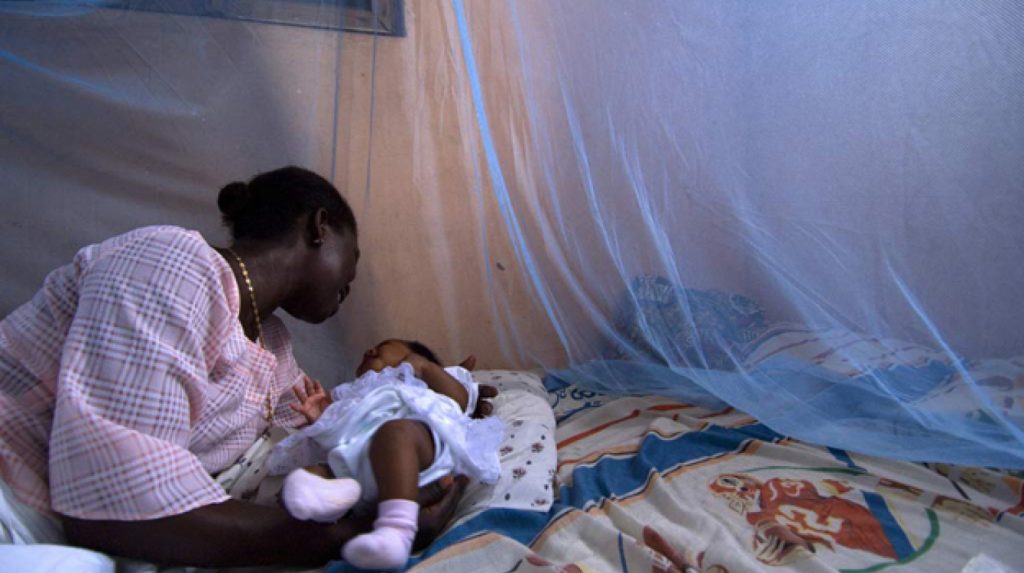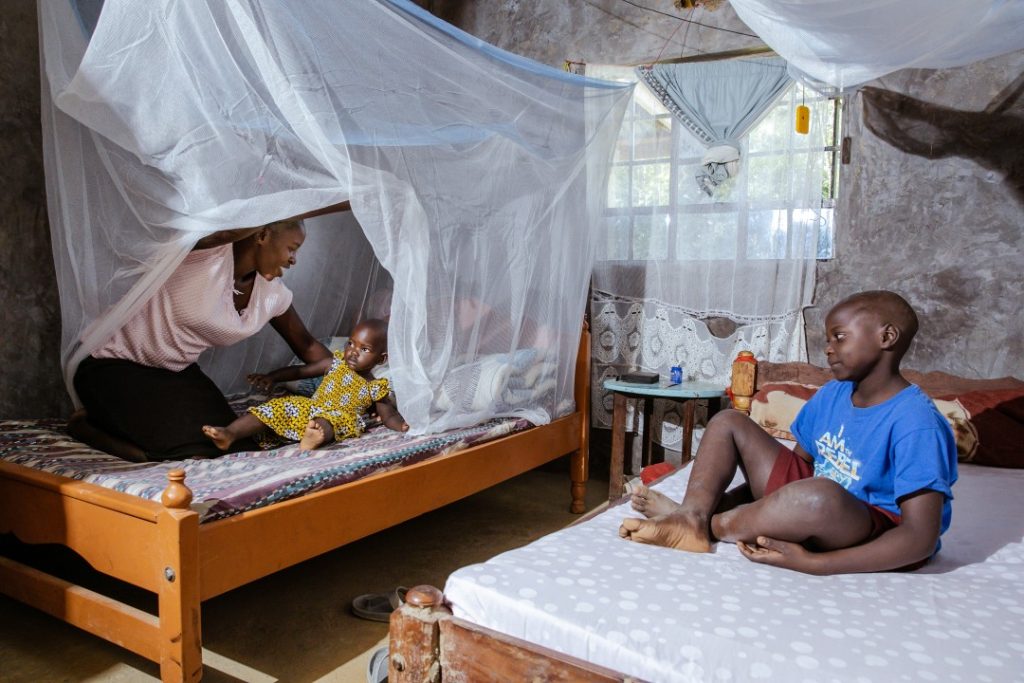
In recent years, progress in reducing malaria has ground to a standstill. Not only does malaria continue to directly endanger health and cost lives, but it also perpetuates a vicious cycle of inequity. People living in the most vulnerable situations including pregnant women, infants, children under 5 years of age, refugees, migrants, internally displaced people, and Indigenous Peoples continue to be disproportionately impacted.
The WHO African Region shoulders the heaviest burden of the disease – accounting, in 2022, for 94% and 95% of malaria case and deaths. Rural populations in the African region living in situations of poverty and with less access to education are the most impacted. In view of the current trajectory, critical 2025 milestones of the WHO global malaria strategy for reductions in malaria cases and deaths will be missed.
Why are pregnant women, young children and other groups in vulnerable situations not accessing the malaria services they need? On World Malaria Day 2024, WHO joins the RBM Partnership to End Malaria and other partners in highlighting barriers to health equity, gender equality and human rights in malaria responses worldwide – as well as concrete measures to overcome them.
KEY MESSAGES – ACHIEVING THE VISION OF A MALARIA-FREE WORLD
Everyone has the right to quality, timely, and affordable services to prevent, detect, and treat malaria, yet this is not a reality for all.

Infants and young children continue to suffer the greatest mortality; in 2022, an estimated 4 out of 5 malaria-related deaths in the African Region were among children under 5 years of age. Inequities in access to education and financial resources further exacerbates risk: children under 5 years of age from the poorest households in sub-Saharan Africa are 5 times more likely to be infected with malaria than those from the wealthiest households.
Pregnancy reduces a woman’s immunity to malaria, making her more susceptible to infection and increasing her risk of severe disease and death. Gender inequalities, discrimination and harmful gender norms heighten her risk of contracting the disease. If untreated, malaria in pregnancy can cause severe anaemia, maternal death, stillbirth, premature delivery, and low-birth weight babies.
Refugees, migrants, internally displaced people and Indigenous Peoples are also at higher risk of malaria and may disproportionately experience adverse conditions where malaria thrives.
Climate change and humanitarian emergencies, including natural disasters and conflicts in malaria-endemic countries, are displacing populations making them vulnerable to the disease. These and other at-risk groups continue to be excluded from the services they need to prevent, detect and treat malaria, hindering progress on achieving the vision of a malaria-free world.
On World Malaria Day, let’s “Accelerate the fight against malaria for a more equitable world” through:
- Ending discrimination and stigma
- Engaging communities in health decision-making
- Bringing health care close to where people live and work through primary health care
- Addressing factors that increase malaria risk
- Including malaria control interventions in universal health coverage
WHO IS AT RISK?
- Malaria disproportionately affects those in situations of greatest poverty and vulnerability, with young children in the African Region suffering the greatest mortality.
- Refugees, migrants and internally displaced people are at higher risk of malaria, due to limited access to health services, and financial and geographical barriers.
- Migrant populations such as miners, agriculture workers, labourers and soldiers are particularly susceptible to malaria.
- Indigenous Peoples are at high risk of malaria due to the remote locations – far from health services – and conditions in which they often live.
- Pregnant women living in poor, rural areas are disproportionately impacted by malaria.
- Pregnancy reduces women’s immunity to malaria, making them more susceptible to infection and increasing their risk of severe disease and death.
- Malaria infection in pregnancy also carries substantial risks for the fetus and newborn child – including low birthweight, a strong risk factor for neonatal and childhood mortality.
GENDER BARRIERS TO ACCESSING HEALTH SERVICES
In malaria-affected communities, barriers to accessing health services may include, for example:
- Lack of decision-making power: in some communities, gender dynamics within a household can hamper a woman’s ability to access prompt malaria prevention and treatment services. Social and cultural norms may require women to receive male approval before using preventive measures such as insecticide-treated nets or seeking care.
- Discriminatory attitudes of healthcare providers: for young women, stigma associated with adolescent pregnancy may create barriers to timely malaria prevention and care.
- Lower literacy rates: some studies have shown that women and girls tend to have less access to information on how to protect themselves from malaria, and how to seek care, due to their comparatively lower literacy levels.
- Humanitarian crises and conflict: in situations of conflict, health services are often compromised and the insecurity can lead to challenges in safely accessing information and care, particularly for women and children.
- Climate change is undermining the social determinants of health by impacting livelihoods, nutrition, migration and security. It contributes to reduced access to essential health services. Taken together, these factors are heightening the risk of malaria-related illness and death, and women and girls are among the groups that are disproportionately impacted.
Boys and men may also experience gender-related health vulnerabilities, heightening their risk of malaria and introducing barriers for access.
- Men working outdoors in forestry, fishing, mining or agriculture may be at greater risk of contracting malaria, especially when their work occurs during peak mosquito biting times around dusk.
- Social and cultural norms of masculinity may discourage boys and men from seeking health care services.
Credit: who
